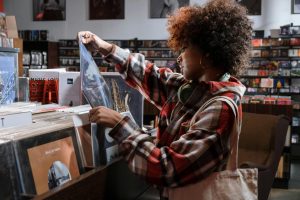The Art of Digital Photography: Beyond Smartphone Cameras
The rise of technology has revolutionized the way we capture and share moments. Gone are the days of lugging around heavy cameras and film rolls. Now, all we need is a smartphone and a tap of a button. It’s convenient, it’s quick, and it’s accessible. But as much as our smartphones have become our go-to device for taking photos, there is still something to be said about the art of digital photography beyond smartphone cameras.
The Evolution of Photography
Photography dates back to the early 1800s when Nicéphore Niépce captured the first permanent photograph. Since then, photography has gone through several advancements, from the introduction of color film to the popularization of digital cameras. However, with the rise of smartphones in the late 2000s, photography has taken a different turn.
The Smartphone Camera Revolution
Smartphone cameras have come a long way, with each new release boasting better and more advanced features. They offer convenience and accessibility, making it possible for anyone to capture high-quality images anytime and anywhere. With a plethora of editing apps available, our smartphones have now become a complete photography studio. But is it enough?
The Limitations of Smartphone Cameras
While smartphone cameras have their perks, they have limitations as well. One of the main limitations is the size of the camera sensor. Compared to dedicated digital cameras, smartphone cameras have smaller sensors, resulting in lower image quality, especially in low light conditions. Additionally, smartphone cameras have limited manual control options, restricting creative possibilities.
Beyond Megapixels
Many people believe that the more megapixels a camera has, the better the image quality will be. However, this is not entirely true. Yes, resolution is essential, but it’s not the only factor that determines image quality. The sensor size, aperture, and lens quality also play a significant role. Dedicated digital cameras offer larger sensors, better lenses, and more control options, resulting in higher quality images.
The Art of Digital Photography
The art of digital photography goes beyond just point and shoot. It requires technical knowledge, an eye for composition, and a creative vision. Smartphone cameras, while convenient, limit the photographer’s ability to experiment and push their creative boundaries.
Advantages of Dedicated Digital Cameras
Unlike smartphone cameras, dedicated digital cameras have a variety of lenses to choose from, allowing photographers to capture different perspectives and achieve desired effects. They also offer manual control over settings such as aperture, shutter speed, and ISO, giving photographers more control over the final image. Additionally, dedicated digital cameras offer RAW image format, allowing for more flexibility in editing and preserving image quality.
Unleashing Your Creative Potential
The beauty of digital photography lies in its endless possibilities. With dedicated digital cameras, photographers have the opportunity to experiment with different lighting, angles, and effects to create truly unique and captivating images. The power to create something out of the ordinary lies in the hands of the photographer, not the limitations of a smartphone camera.
The Verdict
Smartphone cameras have undoubtedly made photography more accessible and convenient. But for those seeking to truly master the art of digital photography, dedicated digital cameras offer endless possibilities. With larger sensors, better lenses, and more creative control, the results speak for themselves. So next time you reach for your smartphone to capture a moment, remember, there is a whole world of digital photography waiting to be explored beyond the limitations of a tiny lens.
In Conclusion
The art of digital photography is a combination of technical knowledge, creativity, and a good eye for composition. While smartphone cameras have their benefits, they cannot compete with the image quality and creative potential of dedicated digital cameras. So, if you’re looking to take your photography to the next level, consider investing in a dedicated digital camera. Who knows, you might just fall in love with the process and unlock your full creative potential.




